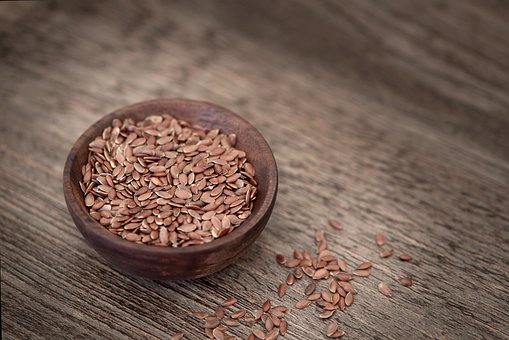Flax seeds are a small, golden or brown-colored seed that is gaining popularity for its potential health benefits. These seeds are packed with nutrients, including fiber, antioxidants, and omega-3 fatty acids. In this article, we will explore the nutritional value of flax seeds and whether or not they are healthy for you.
First, let’s take a look at the nutritional value of flax seeds. One ounce (28 grams) of flax seeds contains:
127 calories
4 grams of protein
9 grams of carbohydrate
8 grams of fiber
7 grams of fat
Flax seeds are also a good source of several key vitamins and minerals, including:
Manganese: A mineral that is important for bone health, metabolism, and the production of collagen and elastin. One ounce of flax seeds contains approximately 0.9 milligrams of manganese.
Magnesium: A mineral that is important for maintaining normal muscle and nerve function, supporting a healthy immune system, and keeping bones strong. One ounce of flax seeds contains approximately 75 milligrams of magnesium.
Phosphorus: A mineral that is important for the growth and repair of tissues, the production of energy, and the formation of ATP (adenosine triphosphate), the main energy currency of the body. One ounce of flax seeds contains approximately 111 milligrams of phosphorus.
Thiamin: A B-vitamin that is important for energy metabolism and the proper functioning of the nervous system. One ounce of flax seeds contains approximately 0.2 milligrams of thiamin.
Flax seeds are also a good source of antioxidants, including lignans and flavonoids. Lignans are a type of phytoestrogen, which are plant compounds that have estrogen-like effects in the body. Some research suggests that lignans may have a protective effect against certain types of cancer, such as breast cancer. Flax seeds are one of the richest sources of lignans, with one ounce containing approximately 75 to 800 milligrams.
Flax seeds are also a good source of omega-3 fatty acids, which are essential fats that play a crucial role in brain function and heart health. One ounce of flax seeds contains approximately 6,338 milligrams of omega-3 fatty acids.
Now that we’ve explored the nutritional value of flax seeds, let’s consider whether or not they are healthy for you.
Overall, flax seeds are considered to be a healthy food choice. They are high in fiber, which can help to lower cholesterol levels and reduce the risk of heart disease. Flax seeds are also a good source of antioxidants, which can help to protect against oxidative stress and may have a protective effect against certain types of cancer.
In addition, flax seeds are a good source of omega-3 fatty acids, which have been shown to have a number of health benefits, including reducing inflammation and improving heart health.
However, it’s important to note that flax seeds are high in fiber, which can cause digestive issues such as bloating, gas, and diarrhea if consumed in large amounts. It’s generally recommended to start with a small serving of flax seeds (1-2 tablespoons per day) and gradually increase to the recommended daily intake of 2-4 tablespoons.
It’s also worth noting that flax seeds are high in phytic acid, which can inhibit the absorption of certain minerals, such as iron and zinc. However, this can be minimized by soaking the flax seeds before consuming them, as soaking can help to reduce the phytic acid content.

 Home
Home Health
Health Diet & Nutrition
Diet & Nutrition Living Well
Living Well More
More












